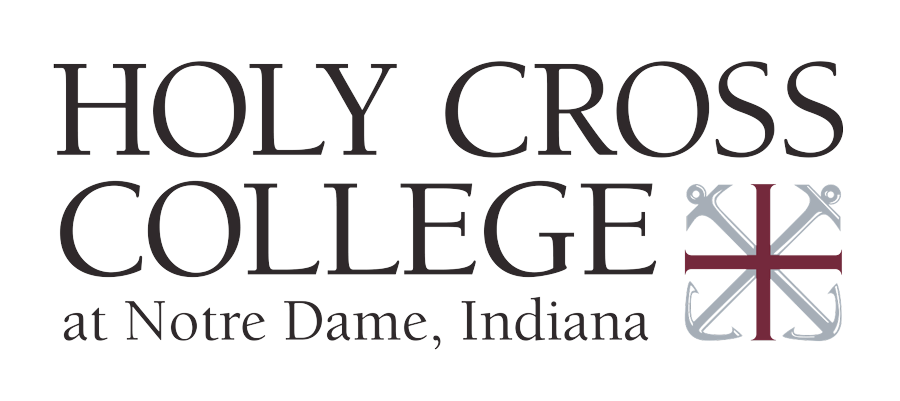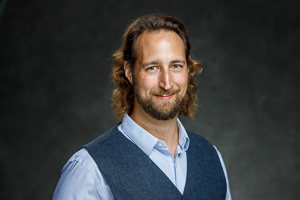Being able to read carefully, form sound arguments, tell compelling stories, understand people and cultures, and write with clarity and skill is what English is all about. There’s no better way to develop these skills than to be immersed in a coherent culture dedicated to developing them in you.
As an English major at Holy Cross, you’ll benefit from:
- small classes with accomplished and seasoned faculty
- coursework in close reading and interpretation, Christian literature, Shakespeare, creative and professional writing, and literary seminars across a range of periods and cultural traditions
- three curricular tracks in Scholarship, Professional Communication, and English Education
- hands-on experience in writing, designing, copy editing, and publishing campus publications
- internship and service-learning opportunities (100 percent of our students do both).
Above all, we believe that reading and talking about serious literature with your professors and fellow students will expand your mind and heart and lead you to be a better scholar, citizen, leader, and disciple.
Effective fall 2021, the English Major requires 36 hours and offers three curricular tracks. All prospective majors must take the introductory course to the major (English 280), three different historical surveys, three upper-level seminars, and an upper-level elective. All English majors are also required to take a course on religion and literature, a seminar on Shakespeare, the Senior Project Studio, and participate in English 499 Editing and Publication.
The English Minor requires English 280, a 290-level course, a Shakespeare seminar, and three electives (one of which should be a 200-level survey).
There is nothing outdated or elitist about promoting excellence in reading and writing, so that is where we focus our energies.
Excellence in reading and writing are deeply intertwined. The Writing program at Holy Cross is based in large measure on the program’s responsibility to teach English 101 Writing & Rhetoric to all incoming first-year students. Those courses focus on fundamentals, strategies, and standards of college composition. We also offer Creating Writing I and II, Writing for Media, Writing for the Environment, and Writing for the Public Sphere. Our Writing Center, located in the middle of the main building, is an opportunity for our best students to train and work as peer tutors. As faculty, we work each semester to connect all our students (and especially those in the Communication track) to writing professionals and publishing opportunities in the local and regional area.
Our approach to Reading is informed by the neurobiology of ‘deep reading’ and the Catholic intellectual tradition. We want our students first to have a solid cognitive map of the history of anglophone literatures, so we offer broad and inclusive historical surveys. Then we want our students to become much better and more careful readers. We ask them to read longer texts and deepen their imaginative encounters. We want our students to read and discuss serious Christian literature. Our partnerships with Shakespeare at Notre Dame and its Actors from the London Stage program make our Shakespeare seminars exciting. All of our upper-level seminars are multi-disciplinary, meaning that students can learn how to interpret complex texts by reading them alongside materials from history, theology, psychology, philosophy, business, and science.
As we move forward, our program will feature upper-level courses with built-in trips abroad — to Oxford (UK) for example — so that students can work alongside faculty in archives and other scholarly environments. As a program, we are building on our existing faculty strengths and connections.
A last word about our contemporary environment. We are aware that reading and writing are changing during the world’s ongoing digital revolution. We do not want our students to participate in this new environment uncritically. We teach them how to see it for what it is and to work with it is as a tool for building up and strengthening communities around them. That is why our senior English majors are all required to work together in a Senior Project Studio to produce substantial written projects and to work on producing their own campus’s annual student-run journal, “Core Chronicles.”
English classrooms must do better at the secondary level. We are particularly interested in Catholic schools.
Students interested in the English Education track are advised to earn a four-year degree in English, to maintain a GPA of 3.0+, and then to enter a state-approved Transition to Teaching (T2T) program. In Indiana, the T2T program requires only 18 hours of additional coursework.
Prospective teachers must then take and pass a state licensure examination.
Note: beginning in July 2021, Indiana will begin to replace its Pearson CORE licensure exam with the more widely-used Praxis content and pedagogy licensure exam. In 2021, that process will begin with Mathematics, not English. Our program has studied both the current framework for “Indiana Core Middle School English Language Arts” and the new Praxis framework to determine the best way to prepare our students to meet and significantly exceed the expectations of those exams.
Moving forward, our program seeks to find the best ways of collaborating with education programs at our neighboring Saint Mary’s College and the IUSB School of Education.
If you have questions, please write to the Program Director.
Holy Cross College offers English majors a track in Catholic media. A curricular track is a set of courses that indicates a professional direction or academic focus to a course of studies. A track differs from an academic minor in being more flexible in its number of credits and in suggesting more of a sense of professional direction than in indicating a topical interest. A track is distinct from a concentration at larger colleges or universities that have expansive course offerings within particular academic majors.



